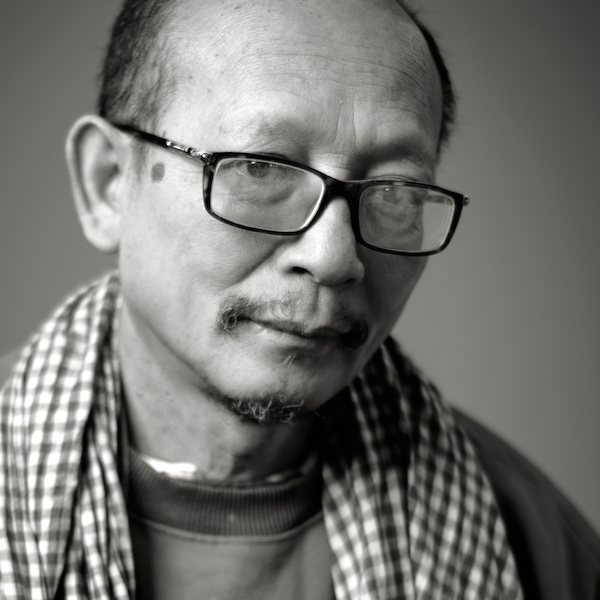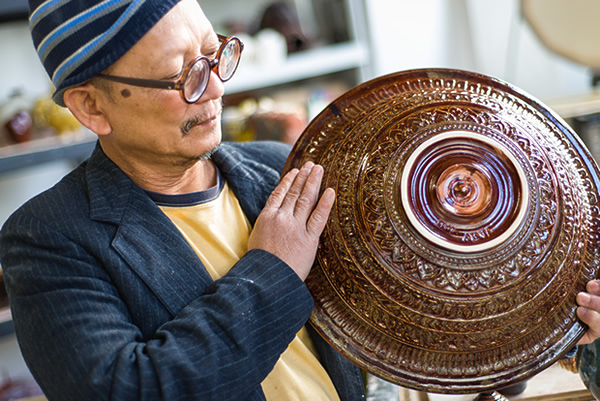Yary Livan

Photo by Adrien Bisson
Bio
A ceramist and teacher, Yary Livan has a legacy of dedication to his craft and his community. Livan is one of perhaps only three Cambodian master ceramists to have survived the 1975 Khmer Rouge genocide and the only one known to be living in the U.S., where he shares his artistic knowledge with the next generation through classes and apprenticeships.
Livan began his studies in 1971 at the Royal University of Fine Arts in the capital city of Phnom Penh where he majored in ceramics and painting and focused on traditional Khmer ceramic forms and ornamentation. Khmer ceramics date back to the sixth century and come in a number of forms, including bells, bottles, bowls, figures, storage jars, pots, and urns.
In 1975, the Khmer Rouge regime, led by Pol Pot, took power in Cambodia and began a systematic genocide, primarily targeting artists, writers, and intellectuals and ultimately killing two million Cambodians. Livan survived by using his knowledge of ceramics to build wood-burning kilns needed to manufacture roof tiles. He spent most of the 1980s and 1990s moving from one refugee camp to another, arriving in the U.S. in 2001 and was granted political asylum in 2002.
In 2002, Livan became a Visiting Artist, Ceramics Program, Office for the Arts at Harvard; that year he was the recipient of the Mima Weissmann Award for Study of Ceramic Arts. During his three-year residency at Harvard, Livan was introduced to new technologies, glazes, and as well as a vibrant community of ceramists.
In 2003 he began teaching at Youth-Art-in-Action, an after-school and summer program for urban youth at the School of the Museum of Fine Arts Boston. Livan taught traditional Cambodian and contemporary sculpture, including modeling, carving, mold making, and casting. He was co-teaching with founder Margaret Rack when the program achieved the 2005 National Arts and Humanities Youth Program Award (formally known as Coming Up Taller) from the President's Committee on the Arts and the Humanities.
Since 2005, Livan has taught ceramics classes at a number of Lowell schools, and in 2010 he was awarded a Massachusetts Cultural Council Traditional Arts Apprenticeship to teach an architect—Samnang Khoeun—the design, molding, carving, and casting of Cambodian ornaments. In 2012 Livan received a Massachusetts Cultural Council Artist Fellowship, and also became adjunct professor at Middlesex Community College.
In 2012 Livan also partnered with longtime friend and fellow master ceramist Kang Proeung to build a wood-fired kiln, using space provided by Lowell National Historic Park in a partnership with Middlesex Community College. By building the wood-fired kiln, Livan is able to achieve effects not possible in a gas kiln while also sharing the traditional techniques as part of Middlesex Community College courses and the park's public programs.


